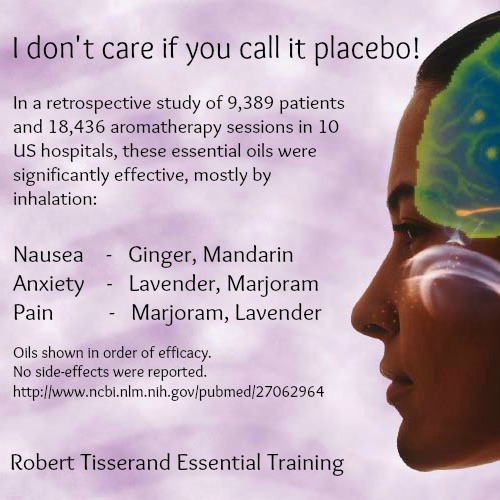Hello Slowman and All,
https://www.ncbi.nlm.nih.gov/pubmed/24126676 "RESULTS:
Of the 102 eligible trials, 23 could not be included in the meta-analyses owing to insufficient data. Sham acupuncture (proportion of responders, 0.38 [95% CI, 0.30-0.47]) and sham surgery (0.58 [0.37-0.77]) were associated with a more pronounced reduction of migraine frequency than oral pharmacological placebos (0.22 [0.17-0.28]) and were the only significant predictors of response in placebo groups in multivariable analyses (P = .005 and P = .001, respectively).
Network meta-analysis confirmed that more patients reported response in sham acupuncture groups than in oral pharmacological placebo groups (odds ratio, 1.88 [95% CI, 1.30-2.72]). Corresponding analyses for continuous outcomes showed similar findings.
CONCLUSIONS AND RELEVANCE:
Sham acupuncture and sham surgery are associated with higher responder ratios than oral pharmacological placebos. Clinicians who treat patients with migraine should be aware that a relevant part of the overall effect they observe in practice might be due to nonspecific effects and that the size of such effects might differ between treatment modalities."
https://www.ncbi.nlm.nih.gov/pubmed/20091554
"Meta-regression analyses showed that larger effects of placebo interventions were associated with physical placebo interventions (e.g. sham acupuncture), patient-involved outcomes (patient-reported outcomes and observer-reported outcomes involving patient cooperation), small trials, and trials with the explicit purpose of studying placebo. Larger effects of placebo were also found in trials that did not inform patients about the possible placebo intervention.
AUTHORS' CONCLUSIONS:
We did not find that placebo interventions have important clinical effects in general. However, in certain settings placebo interventions can influence patient-reported outcomes, especially pain and nausea, though it is difficult to distinguish patient-reported effects of placebo from biased reporting. The effect on pain varied, even among trials with low risk of bias, from negligible to clinically important. Variations in the effect of placebo were partly explained by variations in how trials were conducted and how patients were informed."
https://www.ncbi.nlm.nih.gov/...articles/PMC3601706/
Excerpts: INTRODUCTION
For many years, placebos have been conceptualized by their inert content and their use as controls in clinical trials and treatments in clinical practice. Recent research demonstrates that placebo effects are genuine psychobiological phenomena attributable to the overall therapeutic context, and that placebo effects can be robust in both laboratory and clinical settings. Evidence has also emerged that placebo effects can exist in clinical practice, even if no placebo is given.[
1] The use of the word ‘placebo’ in a medical context, meaning innocuous treatment to make a patient comfortable, dates back to at least the end of the 18th century.[
2] The interest in placebo effects only began with the widespread adoption of the randomized controlled trial (RCT) after world war II. Since then several trials using placebo as a control group have been carried out. However, its use in certain clinical trials remains one of the debated elements.
Go to: SUMMARY
There are valid scientific and ethical considerations for using a control group in a clinical trial. Placebo-controlled trials are justifiable when they are supported by sound methodologic consideration and when their use does not expose research participants to excessive risk of harm. Consideration should be given to the ‘best-available therapy’ control groups in the evaluation of a new therapy or intervention over an existing therapy. Investigators should bear in mind that one should not sacrifice the scientific merit of a trial to include the best-available therapy control group as long as the placebo control group poses little harm to the participants and, importantly, the trial offers potential benefit to the subjects.


Cheers, Neal
+1 mph Faster


